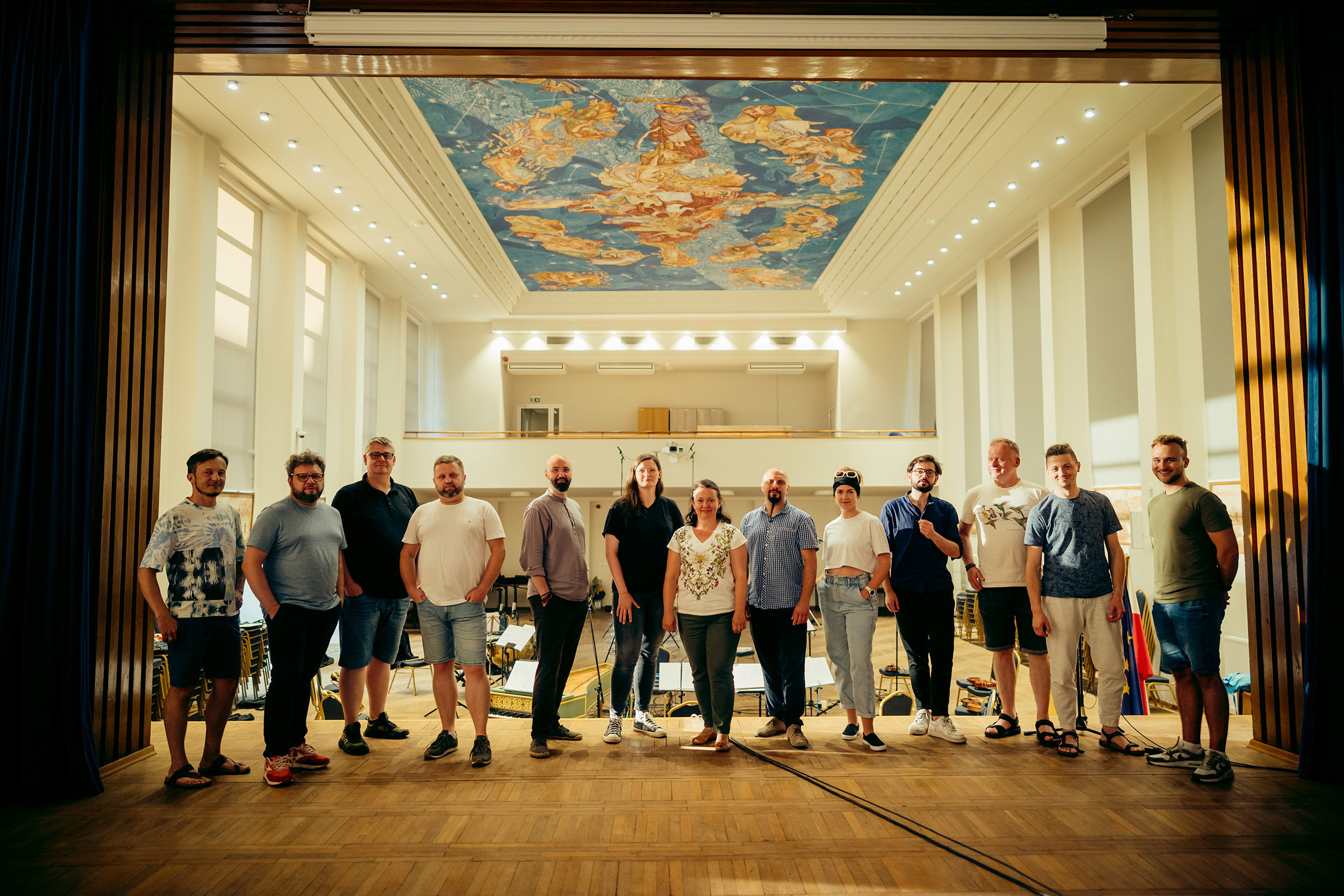Musica Instrumentalis Imperialis
Countertenor

Photo: Maciej Lieder
The new project by Tubicinatores Gedanenses et arcus adiuncti impressively takes us back to a time when tower music served not only as a warning but also as a musical display of grandeur at celebrations and ceremonies. What once acted as a medieval warning system transformed in the age of absolutism into an indispensable element of ceremonial splendor for clergy and kings alike. The ensemble’s current CD, directed by Paweł Hulisz, vividly expresses this fascinating transition and offers a rare opportunity to experience Baroque music in an unusual instrumental combination. Featured for the first time are works that had been forgotten for centuries—brought to life through the world premiere recordings by Tubicinatores Gedanenses and the chamber ensemble arcus adiuncti.
Paweł Hulisz and his ensemble have carefully researched the repertoire for this recording. Trumpets and percussion are at the core of the soundscape, just as they once resounded at imperial courts and major cathedrals. The rich sound of these instruments fills grand, prestigious acoustic spaces, reviving the splendor of bygone eras. The inclusion of timpani and natural trumpets—a combination that was once indispensable at courts and celebrations but is now rarely heard—makes this new recording especially unique.
The rulers of the absolutist era, especially the Habsburg emperors Joseph I and Charles VI, were not only patrons of the arts but were often musically active themselves, fostering the arts with great dedication. Particularly influential were Johann Joseph Fux and Antonio Caldara, who shaped the musical taste and cultural identity of the time as court composers. Fux, as the founder of the strict contrapuntal style, set standards that would be essential in Classical music by defining the balance between consonance and dissonance.
The CD’s carefully selected repertoire encompasses seven composers whose works offer a representative crosssection of the musical spectrum and the dynamic developments of the 17th and 18th centuries. Franz Ignaz Anton Tuma, Wenzel Raimund Johann Birck, and Carl Matthias Reinhardt are among the composers whose works are revived here with a dedication to musicological ideals. Tuma and Birck masterfully blend counterpoint with melodic passages in the galant style, foreshadowing early Classical elements in their compositions. Carl Reinhardt, who composed for the Schottenstift and St. Stephen’s Cathedral in Vienna, shows how the royal chapel influenced the development of new musical trends.
Also represented on this CD are Josef Umstatt and Ignaz Prustmann. Umstatt, harpsichordist and organist of the Viennese court chapel, set a benchmark in sacred music with his rigorously composed Sonata à 3. Prustmann’s church sonata, featuring trumpets and timpani for a festive effect, underscores the opening of services and vividly illustrates how liturgical and secular elements intertwined in the music of that era.
A particularly delightful discovery is an excerpt from Johann Valentin Meder’s opera *Die beständige Argenia*. Having spent much of his career in Estonia, Meder is credited with composing what is likely the first German-language opera in history.
The technical demands of the works on this recording are immense, testifying to the high level of training among the imperial court trumpeters in Vienna. For the musicians of Tubicinatores Gedanenses, these rediscovered compositions present a welcome challenge, allowing them to showcase their skill and joy of playing on natural trumpets, an instrument that requires tremendous mastery.
Founded in Gdańsk, Tubicinatores Gedanenses et arcus adiuncti is the only systematically working ensemble for historical tower music in Poland. Combining historical trumpets, percussion, and other wind instruments, the musicians revive many almost forgotten traditions. Their mission includes sharing historical contexts and musical phenomena. Each year, Tubicinatores Gedanenses organizes the Tower Music Festival in their hometown. In 2022, this included a moving tribute to Ukraine. The ensemble also keeps the tradition of tower music alive by performing at battle reenactments and city festivals.
The ensemble is led by Paweł Hulisz, one of the most versatile trumpeters of his generation. With a deep passion for the trumpet’s diverse possibilities, he explores a wide range of styles, from early to contemporary music. As the principal trumpeter of the Musical Theater in Gdynia and a member of various orchestras throughout Poland, he is
firmly rooted in the Polish music scene. In addition to his numerous recordings, he is dedicated to editing historical music prints from the 17th and 18th centuries, which he researches with enthusiasm and prepares for modern performances.
We would also like to express our gratitude to Arne Thielemann for his invaluable assistance in the selection of the repertoire.